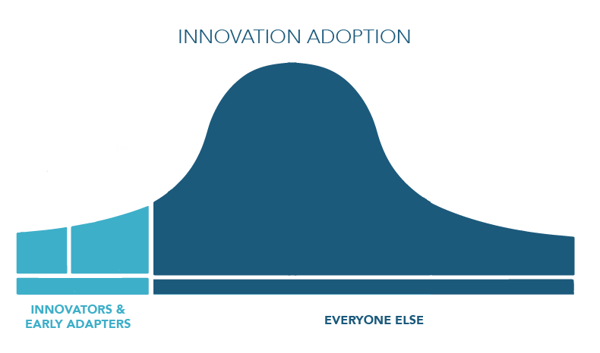As a decision maker, you’ve identified a need in your agency; a process that needs improvement or a problem that needs to be solved. You secure the funding and spend hundreds of man hours investigating what technology solutions are available to meet your needs. A tremendous amount of effort is expended defining the requirements, procuring the system and ultimately deploying the solutions that will improve your operations. Unfortunately, often you’ve missed the most important part of your entire program – obtaining stakeholder buy-in and managing organizational change. Failure to properly manage these two things can derail the success of your technology before you can ever truly measure its true overall effectiveness.

As humans, we are creatures of habit and generally don’t like change. We like what we know and feel comfortable with. This can be especially true at public transit agencies where systems and processes might have been in place for decades, and where modifications to existing labor rules might be required to make organizational change a reality. In such an environment, it critical to study the impact new technology will have on your operations AND your employees.
Of course, there are those among us who enjoy being innovators or early adopters of technology. Research suggests that about 16 % of our population would consider themselves in this category. That leaves the rest of us. If you believe this research, it’s fair to say that most of your employees likely fall into the latter category which means that their willingness to adopt new technology falls anywhere from careful consideration to reluctance.
So, what does this mean for your newly acquired solution? It means if you don’t properly manage its acquisition and introduction, it could face underutilization or worse- a complete lack of adoption.
So, what is an agency management team to do? It all starts with stakeholder buy-in. If you enlist the opinions of those who will be using the technology and make them part of defining the solution they will be more apt to utilize it. If you don’t have stakeholder buy-in at every level of the organization, you’re setting yourself up to fail. In an article entitled How to Engage Stakeholders and Gain Management Buy-In by Martin Webster, he suggests that “There are stakeholders and then there are stakeholders! So, identify them all and work out their needs. Think about the people you need to deliver the project. Think about the people your change will affect.” He goes on to say “Work out who wants you to succeed and who does not. Then find out what are their success criteria and their fears are by talking and listening to them”. This is particularly important in situations where the technology being considered will be replacing work previously done manually by an employee.
If you’ve done this, your roll-out success is then fully dependent upon two key factors: your training plan and your communication plan. You need to connect the dots between what the system is capable of and the problem it solves for the user. You must be able to communicate and demonstrate the personal benefit in a way that the user understands and believes.
Technology is powerful. It can change the way we work and how we live. It can provide great enhancements in productivity. It saves time and reduces costs. But, if your employees resist the technology you implement and the change it brings to their job, you are wasting your money and everyone’s time.
Learn how Clever Devices can help you get the buy-in from your stakeholders and help you get the most out of your ITS technology. Read the Solution Brief.